|
The Poor People’s Campaign, ahead of its June 18 gathering, is calling out the false pro-corporate rhetoric on poverty, wages, and inflation. Newspaper headlines are warning of rising inflation and the possibility that voters will respond to it by punishing Democrats in the midterm elections this fall. But there are few, if any, headlines about the enormous numbers of Americans who are low-income and poor—a travesty in one of the world’s wealthiest nations. The problem of poverty is marked by several factors, the first of which is a deeply flawed government indicator of who qualifies as poor. Measured by the federal poverty line, about 37 million Americans live below the poverty line—that’s about 11 percent of the population. But this leaves out many millions more Americans who live one emergency expense away from poverty. The Poor People’s Campaign (PPC): A National Call for Moral Revival relies on economic calculations showing that 140 million Americans—which is more than 40 percent of the population—are poor or low-income. The second factor is mainstream media coverage that routinely skews in favor of wealthy elites by downplaying the extent of poverty. For example, when President Joe Biden cited the PPC’s estimate in an address in June 2019, the Washington Post engaged in a lengthy fact-checking investigation, interviewing numerous analysts who nitpicked over the difference between “poor” and “low-income” people, saying, “The two terms sound alike, but they describe different economic conditions.” A third obstacle is corporate greed and how wealthy elites are vacuuming up every dollar they can into their own pockets, taking advantage of an economic system they helped to build in order to benefit themselves. For example, the investment giant Morgan Stanley released a report recently complaining about how rising wages were eating into corporate profits. But of course, any wage increases are dampened by inflation rates rising much faster. This is a decades-long trend, not a new phenomenon, as any honest economist would explain. But now that inflation is rising faster than it was before, media pundits and news outlets suggest that the fault lies with Americans earning higher wages and spending too much money. There is evidence to the contrary—that inflation is rising because of bloated corporate profits, not an increase in wages and consumer spending—a point that the corporate media has failed to elevate or investigate with the same enthusiasm with which it has decided poverty is not a serious national problem. When Biden was running for president, he addressed the PPC in September 2020, affirming the moral necessity of eradicating poverty and promising to do what he could to end it. The message was consistent with his platform to “Build Back Better,” a slogan that became the name of his ambitious anti-poverty legislation. In December 2020, after it was clear that Biden had won the election, his transition team reached out to the PPC for a meeting and discussed a list of 14 policies that the organization laid out for his first 100 days in office that included COVID-19 relief for low-income Americans, guaranteed health care for all, a $15 per hour federal minimum wage, and more. In June 2021, once he was elected, Biden once more reached out to the PPC with a recorded message for the PPC ahead of its annual national gathering affirming his alignment with its goals. But in spite of Biden’s numerous nods to the PPC and its agenda to eradicate poverty, few, if any, of the organization’s demands have been met. Biden’s Build Back Better bill is languishing, stymied by the stubborn refusal of two corporate Democrats, Joe Manchin (D-WV) and Kyrsten Sinema (D-AZ), to support most of their party’s progressive legislative proposals. Bishop William Barber II and Rev. Liz Theoharis, the PPC’s co-chairs, recently wrote a letter to Biden requesting another meeting with the White House ahead of their June 18 March on Washington. In their letter, the two progressive leaders reminded Biden that when he addressed their gathering as a candidate running for office, he “promised that ending poverty would be more than an aspiration.” According to Barber and Theoharis’ letter, it’s not enough to aspire to enacting anti-poverty measures. They wrote, “We have offered a moral narrative that refuses to accept the lies of scarcity or partisan gridlock as excuses for taking action. We are determined to change the conversation about what is possible, so that we can ensure all of our justice, here and now.” It’s a call for the president to engage directly with what matters most: not economic phenomena like inflation, not politics and the midterms, but that which impacts more than 40 percent of the nation’s population—poverty and financial precarity. Rev. Theoharis told me in a recent interview that Biden had made a “commitment to ending poverty, not managing, not ameliorating, to actually looking at the policies that could lift people up.” Still, Theoharis said, “we’ve been pushing and will continue to push Congress because we know that those two Democratic senators [Sinema and Manchin] and 49 Republican senators have stood against living-wage jobs and voting rights.” Among the anti-poverty measures that the Build Back Better bill would have enacted was the renewal of an expanded child tax credit. During the brief time that an increased child tax credit was in effect, it helped to push millions of American families out of poverty. Theoharis said that the challenge of making headway on poverty lies in the question of, “how can the president be able to use the microphone that he has to turn it toward poor and low-income people, low-wage workers?” In other words, how can Biden use his bully pulpit to pressure the media and congressional lawmakers into taking seriously the needs of 140 million Americans? “Any nation that has 43 percent of its population living in poverty or one couple-hundred-dollar emergency away… from absolute economic ruin is an impoverished democracy,” said Theoharis. The PPC has for years been trying to shift the culture and the national conversation away from the pro-business mentality that measures economic health by stock prices and Wall Street’s profits rather than by whether or not most Americans are financially stable. But Morgan Stanley had it right when it pitted corporate profits against rising wages. There cannot be both rising profits and rising wages. Corporate profits depend on keeping wages low. In order to lift most Americans out of poverty, we need higher wages that will necessarily cut into corporate profits. If Wall Street sees such logic as class warfare, so be it, for Wall Street has been waging just such warfare on the American people for far too long. “What happens when you actually provide for the people, when you actually ensure that people are making living wages and have housing, is that that actually saves the nation, both spiritually and morally,” said Theoharis, reminding us that what matters much more than the unquenchable thirst of a handful of wealthy elites is the well-being of all Americans. AuthorSonali Kolhatkar is the founder, host and executive producer of “Rising Up With Sonali,” a television and radio show that airs on Free Speech TV and Pacifica stations. She is a writing fellow for the Economy for All project at the Independent Media Institute. This article was produced by Economy for All, a project of the Independent Media Institute. Archives June 2022
0 Comments
June 7 was a bad day for Luis Almagro, secretary-general of the Organization of American States (OAS). During the ninth Summit of the Americas, a young man declared to him what he is: an assassin and puppet of the White House, instigator of the coup in Bolivia. He said that Almagro cannot come to give lessons on democracy when his hands are stained with blood. In another room at the summit in Los Angeles, Secretary of State Antony Blinken seemed to be doing no better: several journalists rebuked him for using freedom of the press to provide cover for the murderers of journalists and for sanctioning and excluding certain countries from this meeting. “Democracy or hypocrisy?” could be heard over the loudspeaker that day. In reality, this stormy summit began with a large diplomatic stumble for the United States, when several Latin American presidents announced that they would not participate in the summit because of the exclusion of Cuba, Venezuela, and Nicaragua, as dictated by the White House, while the U.S. State Department still claims the open and unrestricted nature of the meeting’s call. Its website says, “Throughout, the United States has demonstrated, and will continue to demonstrate, our commitment to an inclusive process that incorporates input from people and institutions that represent the immense diversity of our hemisphere, and includes Indigenous and other historically marginalized voices.” Hypocrisy seems to be the glue of this summit, and mainstream U.S. media and analysts declared the June 6-10 meeting a failure before it even started. On June 7, the Washington Post assured readers that “This week’s Summit of the Americas in Los Angeles will be remembered for its absences rather than its potential agreements,” focusing its attention on Mexican President Andrés Manuel López Obrador, who was the most mentioned political figure in U.S. networks and media on June 7 and 8, even more than U.S. President Joe Biden, according to statistics from Google Trends. Richard N. Haass, who was the adviser to former Secretary of State Colin Powell and director of policy planning for the State Department, summed up the disaster superbly in a tweet: “The Summit of the Americas looks to be a debacle, a diplomatic own goal. The U.S. has no trade proposal, no immigration policy, and no infrastructure package. Instead, the focus is on who will and will not be there. Unclear is why we pressed for it to happen.” As can be expected of a meeting for which the invitation list had not been declared just 72 hours before it began, apathy seems to dominate the debate rooms, to which almost no one goes, according to witnesses. Even so, the United States government did not miss an opportunity to secure the appearance of participation by the civil society groups on which it bets, and it met with the envoys from Miami, paid for by USAID, and awarded them with more money. During the summit, Blinken promised a new fund of $9 million to support “independent journalism” to those who already receive $20 million a year for promoting “regime change” in Cuba. This political pageantry is happening in what is essentially a bunker, because the Los Angeles Police received more than $15 million to police the summit and militarize a city famous for its homelessness and belts of poverty. The U.S. Democratic Party elite, meanwhile, remain out of touch with the reality of their own country, shaken by daily massacres, increasingly powerless to meet the expectations of citizens, and with most decisions and legislative projects stalled. They are replicating the clichés of the Monroe Doctrine—America for the Americans—and demonstrating what appears to be a commitment to isolationism with respect to Latin America. The United States rarely takes into account the differentiating features of its Latin American neighbors: cultural, linguistic, religious, and traditional—in short, those that grant and promote a genuine way of understanding life and its miracles. It might seem incomprehensible at this point, but the U.S. foreign policy toward Latin America is articulated and carried out from exclusively ideological approaches, with simplistic decisions that end up harming everyone—including and especially the United States itself. Defying the storm, the People’s Summit for Democracy has been installed at the doors of the meeting of the friends of the White House. Sponsored by some 250 organizations, most of which are local unions, the counter-summit is marching through the streets of Los Angeles on June 10, whether or not the authorities, who have done everything possible to silence the alternative meeting, give permission. But the media blockade is not having the expected success. Almagro and Blinken have gone viral on social media for reasons beyond their control, and they will not be the last to prove firsthand what the outrage of the excluded looks like. AuthorRosa Miriam Elizalde is a Cuban journalist and founder of the site Cubadebate. She is vice president of both the Union of Cuban Journalists (UPEC) and the Latin American Federation of Journalists (FELAP). She has written and co-written several books including Jineteros en la Habana and Our Chavez. She has received the Juan Gualberto Gómez National Prize for Journalism on multiple occasions for her outstanding work. She is currently a weekly columnist for La Jornada of Mexico City. Archives June 2022 6/13/2022 Colombia Needs Democracy, Plain and Simple: An Interview With María José Pizarro. By: Vijay Prashad & Taroa Zúñiga SilvaRead NowOn May 29, 2022, a political earthquake struck Colombia: the left-leaning Historical Pact’s presidential candidate, Gustavo Petro, and vice-presidential candidate, Francia Márquez, won the first round of the presidential elections after getting 40.33 percent of the votes. The blocs representing the far-right and right-wing parties—which have dominated Colombian politics for most of its history—trailed far behind. The choice of name for the bloc representing the left—Historical Pact—was chosen with the intention of reflecting the unique nature of this moment in the country’s history. Petro and Márquez will now enter a second round of voting against the far-right ticket of Rodolfo Hernández and Marelen Castillo on June 19. Opinion polls suggest it will be a close race between the two tickets, although there are fears that the right wing will interfere, possibly with violence, to prevent a left-wing victory in Colombia. The last few times that the left came near the Palacio de Nariño, where the president works and lives, violent outbreaks during the election process put that possibility to rest. A cycle of right-wing rule was initiated after the assassination of the left-wing politician Jorge Eliécer Gaitán, who was killed in 1948 and whose death began a period of Colombia’s history hauntingly known as “La Violencia” (“the violence”). The second opportunity for the emergence of the left came in 1990-1991, when the left-wing guerrillas put down their guns and entered the political contest in good faith, but right-wing forces assassinated three popular presidential candidates, which included the liberal candidate Luis Carlos Galán and two left candidates, Bernardo Jaramillo Ossa and Carlos Pizarro Leongómez. Petro and Márquez’s Historical Pact offers the third opportunity for a left-wing wave, which will help set aside the violent agenda that has so far been supported by the country’s elite. Can Colombia Breathe? María José Pizarro is the daughter of the slain politician Carlos Pizarro Leongómez, who was assassinated in 1990. She was only 12 years old when her father was shot to death on an airplane from Bogotá to Barranquilla. Pizarro’s parents—Leongómez and Myriam Rodríguez—were members of the guerrilla group M19. In his youth, presidential candidate Gustavo Petro was also a member of M19; he was arrested in 1985 (at the age of 25) and sentenced to 18 months in prison for possession of guns. Pizarro went into exile in Spain when her father was killed, and then returned in 2002. She is now a member of the Chamber of Representatives, for which she ran on the Historical Pact platform. When we asked Pizarro about Colombia’s liberal constitution of 1991, she said, “The first 19 articles of the Colombian Constitution establish the social rule of law and the democratic parameters and freedoms in our country.” “What we require,” she said, “is not only that the 1991 constitution be complied with, but also that those who have held power for the last 200 years be willing to allow other political sectors to govern Colombia. That is called plain and simple democracy.” Before the first round of voting took place on May 29, the mayor of Medellín, Daniel Quintero—a popular independent mayor of Colombia’s second-largest city--tweeted on May 9, hinting at his support for the Petro-Márquez candidacy with the hashtag “ElCambioEnPrimera,” which is associated with their campaign. He was suspended on May 10 by the Colombian Inspector General’s Office for his alleged interference in the election. By Colombian law, elected officials are not permitted to participate in politics. Quintero responded on Twitter, saying, “The coup d’état has begun in Colombia.” Pizzaro told us that the suspension of Quintero shows disregard for a ruling by the Inter-American Court of Human Rights, under which this prohibition would be considered unjust. Colombia, she said, “is the only country where officials—who are politicians, elected by a popular vote—cannot express themselves politically.” Reflecting on the suspension of Quintero, Pizzaro said that the country needs “political reform that [involves] changing the rules of the game to allow or at least to avoid the whole series of situations that arise [as a result of] these obsolete outcomes.” Colombia, she said, “needs a new way of doing politics for the new generation.” No More Armed Struggle Pizzaro grew up with her parents in the armed struggle. She has watched her country be torn to bits by the elite, who were unwilling to adopt even the most basic liberal principles, and by a state quick to respond with violence if the elite felt threatened. “Colombia,” she told us, “deserves a path to peace.” In 2016, after a difficult period of negotiations, sections of the armed left and the state agreed to a peace process. The agreement—ratified by the elected officials—led to the disarmament of the revolutionary group FARC (Common Alternative Revolutionary Force) and its conversion into a political party called Comunes (which is a coalition partner of the Historical Pact). Fighters who abandoned the armed struggle have had a hard time reintegrating into Colombia’s social and political life. This is a worry for Pizzaro. “We have to reintegrate in a peaceful way all people who had [earlier] taken the decision of the armed road,” she said. “We have to generate social conditions so that no Colombian ever has to opt for the armed way to transform the political and social life of the country.” The path to this transformation must be through democratic possibilities, she said. Petro comes to this race as the former mayor of Colombia’s capital, Bogotá. His running mate—Francia Márquez—represents the transformations that Pizzaro described to us. An Afro-Colombian woman, Márquez worked as a domestic worker to pay for her studies and built her reputation as a defender of the poor against mining and electricity companies. Her bravery is legendary, as was demonstrated when, while she was on stage at an Afro-Colombian Day rally in May, her adversaries pointed a laser at her, and she continued to speak and remained undaunted by the fact that the laser could have represented the threat of a sniper weapon. Márquez’s candidacy represents evidence that the new hoped-for politics Pizarro spoke of has arrived in Colombia. The journalist and politician Mábel Lara wrote a public letter to support the Historical Pact—even though she has a different political ideology. In her letter, she wrote, “I was born and grew up in Cauca, a region like all the regions of Colombia: forgotten by the political leadership and the political class that has been elected for decades and has not listened to us. I have received a call from a Black woman from the region who, like me, has fought democratically at the polls and has invited me to accompany her. I accept the call of my friend Francia Márquez at this important moment in history.” Pizarro concurred. AuthorVijay Prashad is an Indian historian, editor and journalist. He is a writing fellow and chief correspondent at Globetrotter. He is the chief editor of LeftWord Books and the director of Tricontinental: Institute for Social Research. He is a senior non-resident fellow at Chongyang Institute for Financial Studies, Renmin University of China. He has written more than 20 books, including The Darker Nations and The Poorer Nations. His latest book is Washington Bullets, with an introduction by Evo Morales Ayma. This article was produced by Globetrotter. Archives June 2022 How often do we hear that socialism sounds like a good idea but it doesn't work in practice because of human nature. This is an old refrain. People are by nature selfish and so competition is the natural outcome with the most talented and aggressive people reaching the top and the mediocre masses down on the bottom. But suppose it is really the opposite. Suppose those who engage in friendly cooperation really are closer to what nature intends. In a cooperative society maybe even the victims of aggressive actions still have a better chance to thrive than they would in a completely competitive environment. Maybe the Ayn Rand world is not the world for us and socialism is more natural after all. An article in Science Daily (12-8-2010) may provide a clue to the answer to these speculations ("Social Relationships in Animals Have a Genetic Basis, New Research Reveals"). Scientists at UCLA have been studying marmots living in the Rocky Mountains of Colorado. Marmots are rodents who are a genus (Marmota) of the squirrel family (Sciuridae). Some marmots have a propensity, so we are told, to chuck wood and are known as woodchucks, however they don’t really chuck (throw) wood. Others can predict (very doubtful) the weather (groundhogs) according to some. The marmots I am linking to possible socialist ideas are the yellow-bellied marmots (M. flaviventris) studied by the scientists. The name refers to fur and not to their lack of valor. The scientists found "that having many friendly interactions gave marmots fitness benefits--these marmots reproduced more," said Amanda Lea, one of the researchers and lead author of the paper. "Over a lifetime [about 15 yrs], a marmot that is very social will have more offspring than a less social one." Hmmmm. I wonder how much this applies to humans. This is one way of putting the "social" into socialism. But the scientists also found out that some marmots are the victims of aggression from their fellow marmots. Those who do not respond in kind, that is those inclined to turn the other cheek pouch, also have a better survival rate. So it seems that "a marmot that is getting picked on frequently" also will have more offspring. It is the family unit as such that is really important. Tolerating aggression as well as strengthening friendly cooperation keeps marmot society functioning. "Those relationships are important for social stability and reproductive success. I believe these ideas are generalizable well beyond marmots," said the study's co-author Daniel T. Blumstein. What is important is that these behaviors have a genetic basis and are passed on through the generations. If such behavior is common to mammals as such then humans also have these inborn tendencies for cooperation and tolerance. These genetic traits are, I think, much more in accord with the ideals of socialism than the ruthless free market world of Ayn Rand and other capitalist apologists. Scientific socialism is, therefore, the correct way to go about constructing a better world than trying to do so based on capitalism. AuthorThomas Riggins is a retired philosophy teacher (NYU, The New School of Social Research, among others) who received a PhD from the CUNY Graduate Center (1983). He has been active in the civil rights and peace movements since the 1960s when he was chairman of the Young People's Socialist League at Florida State University and also worked for CORE in voter registration in north Florida (Leon County). He has written for many online publications such as People's World and Political Affairs where he was an associate editor. He also served on the board of the Bertrand Russell Society and was president of the Corliss Lamont chapter in New York City of the American Humanist Association. Archives June 2022 6/12/2022 ALBA secretary: Summit of the Americas is ‘failure,’ US ‘empire is losing its power. By: Benjamin NortonRead NowThe secretary of the Bolivarian Alliance (ALBA), Sacha Llorenti, discusses Latin America and the Caribbean’s rebellion against the US government’s exclusionary Summit of the Americas, and growing efforts at regional integration against imperialism. Multipolarista host Benjamin Norton interviewed the secretary of the Bolivarian Alliance (ALBA), Sacha Llorenti, about Latin America’s rebellion against the US government’s Summit of the Americas. Presidents of eight countries in the region boycotted the conference, which opened in Los Angeles, California on June 6. Llorenti discussed ALBA’s alternative summit in Cuba, efforts at achieving economic and political integration of Latin America and the Caribbean, and the importance of unity against imperialism. “We don’t consider this a summit, nor of the Americas,” he said. Llorenti condemned the Monroe Doctrine, US sanctions, and the “superiority complex that runs through US foreign policy.” “Things are changing,” he added. “What we are seeing is an empire which is losing its power.” A transcript of the interview follows below. It has been lightly edited for clarity. TRANSCRIPTBENJAMIN NORTON: Hello everyone, this is Ben Norton, and you are listening to or watching the Multipolarista podcast. This is a very special episode. I have the great privilege today of speaking with the executive secretary of the Bolivarian Alliance, the ALBA. The full name is the Bolivarian Alliance for the Peoples of Our America. It’s also an economic alliance, and the full name is ALBA-TCP, which is also a “Trade Agreement for the People.” This is an economic alliance created by countries in Latin America and the Caribbean, to support independence from imperialism, sovereignty, and regional integration. And today, I’m speaking with the secretary, the executive secretary of the ALBA, Sacha Llorenti. He is a former Bolivian diplomat and minister. He served as Bolivia’s ambassador to the United Nations, and as a minister under Bolivia’s former president, Evo Morales. Today, we are going to be speaking about the ongoing Summit of the Americas in Los Angeles, California. This has been a diplomatic disaster for the U.S. government, which is hosting the summit. At least eight countries in Latin America have boycotted – their heads of state have boycotted this summit, including the presidents of Mexico, Honduras, Guatemala, El Salvador, and Bolivia. And Venezuela, Nicaragua, and Cuba are not attending either. The U.S. government refused to invite them, but they also said that they don’t even want to attend this summit, which they do not consider legitimate. There are also reports about members of the Caribbean and the Caribbean community, CARICOM, who said that they would potentially boycott the summit, which is going on right now. Today is June 8. It started on June 6, and is going on this week in Los Angeles, California. So unfortunately, Secretary Llorenti does not have a lot of time today, so I’m going to go straight to him. Secretary Llorenti, you are the the leader of the ALBA, the Bolivarian Alliance. Can you talk about what the ALBA’s position has been on the Summit of the Americas? And can you give a general response to how you think the U.S. government has managed this? SACHA LLORENTI: Thank you very much. I want to thank you very much for the opportunity. First of all, we don’t consider this is a summit, nor of the Americas, because of the arbitrary decision of the host country, in this case the United States, to exclude some nations, countries of the Americas, of Latin America and the Caribbean, from this meeting. The ALBA, just to give you some information about our organization, is a multilateral, subregional organization that gathers 10 countries from Latin America and also the Caribbean. It was established in 2004 by Hugo Chávez and Fidel Castro. And then eight other countries joined our organization. We held a summit of ALBA-TCP on May 27, just a few days ago. And in our declaration, we reject the exclusions and the discriminatory treatment in the so-called Summit of the Americas in Los Angeles. I think that, for any honest analyst, this meeting that was convened by the United States has failed already, not just because of the exclusions, but also because of the reaction of most countries of Latin America and the Caribbean. You mentioned a few. Everything started with the statements made by the president of Mexico, followed by the president of Honduras, of Bolivia. They have decided to take a strong position against this exclusion. CARICOM, as you also mentioned, the Community of Caribbean States, had a meeting of foreign ministers a few weeks ago. And they also called the United States for everyone to participate in this meeting. And also the president of the Community of Latin American and Caribbean states, CELAC, who is right now the president of Argentina, has said that he is going to participate in the so-called summit, but he will represent the voice of Latin America and the Caribbean, condemning the decision of the host country, the United States, to exclude these three countries. So it is a failure, not just because the reaction that it has caused in the region, but also because I think that everyone realizes that the United States government is not interested in integration. It’s not interested in human rights, nor democracy. What they do is they try to use every single venue, every single opportunity, in order to help their hegemonic interests instead of integration. This is a good example of what we are facing these days. And another thing that I want to also underline is that it is not just the discrimination against these three countries, but also against many representatives of civil society from different countries. So it shows really how the United States government considers our region. They continue to consider Latin America and the Caribbean as their backyard. A few days ago, Joe Biden said, “It’s not our backyard; it’s our front yard.” They don’t realize that we are not anybody’s back or front yard at all. And I think it’s a mix of not understanding what’s happening, but also this superiority complex that runs through the U.S. foreign policy towards Latin American and the Caribbean. BENJAMIN NORTON: Ambassador Llorenti, I would like to speak also about the countries that are attending. I mentioned the boycott by the presidents of Mexico, Andrés Manuel López Obrador; and Honduras, the new left-wing president of Honduras, Xiomara Castro; and the president of Bolivia, Luis Arce; and also the president of Guatemala, Alejandro Giammattei, for different political reasons – he’s more conservative. But those are the presidents who are boycotting this summit. Also the governments of Cuba, Venezuela, Nicaragua. Together, these countries represent over 200 million people. I should also mention mention that there are reports that the president of El Salvador, Nayib Bukele, is reportedly not attending. So together, that’s more than 200 million people. In the region that is more than one-third of the population. And the leaders who are attending are some of the leaders that are the most notorious for violating human rights. I’m talking about Ivan Duque in Colombia, who is closely linked to drug trafficking. I’m also talking about the extremely right-wing president of Brazil, Jair Bolsonaro, who has threatened sitting politicians, who has praised the Pinochet dictatorship. So what do you think this says about the fact that the progressive governments in the region are, at least their heads of state are, refusing to participate, but some of the most reactionary elements, that violate human rights and do not respect popular democracy are participating in this summit? Along with, I should mention, the country of Spain, which was invited, which is very much not in the Americas. The last time I looked, Spain is in Europe. So what do you think that says about this this summit that’s being organized by the U.S. government? SACHA LLORENTI: As I said before, it’s a failure. It’s the way they look at our region. But it’s part of a plan. It is not something that comes out of the blue. The United States has a clear policy of trying to dismantle, to destroy, every single attempt at genuine, authentic integration. What happened in South America with UNASUR, the unity of nations of the South. It was destroyed by right-wing governments. And of course, everyone also understands that the hand of the State Department was behind that. Also the privatization of CELAC, the Community of Latin American and Caribbean States, I mean, until Mexico took over the presidency. So it is part of a plan. They don’t want a proper unity or integration of Latin American and Caribbean states. That’s why, what they are trying to do is to have the OAS and its secretary general to be, like it was pointed out by Cuban revolutionary Che, the Ministry of the Colonies. And I think it even goes even beyond that. I think that we have to understand that Latin America and the Caribbean has a different agenda, has different interests, has even a different doctrine than the United States. This is the confrontation that we have now. It is a two-centuries-old confrontation. The Monroe Doctrine, that was published in 1823 – it’s going to be 200 years old next year – and the Bolivarian Doctrine, that is also 200 years old. Those two doctrines are in confrontation, because of the incompatibility of their interests for 200 years. And of course some countries of our region align themselves to the Monroe Doctrine, and some others to the Bolivarian Doctrine. I believe that our venue for integration is not the Summit of the Americas. I believe that the true, authentic venue for us to get together is CELAC, the Community of Latin American and Caribbean States. And a proposal has come out in the summit of ALBA. The president of Nicaragua, Daniel Ortega, and also President Maduro recently reiterated the proposal of having meetings with the United States, of course, and Canada, but in another kind of format. CELAC has regular meetings with China, with Russia, with different countries. And I think that this kind of format could be established with the United States and Canada. But we need some venue in which things are run by Latin America and the Caribbean countries and interests, not the US interests. Because, as I said, they are not aligned. And just another thing on who is going on and who is not going. What I believe is that most of the leaders or representatives that are that are going are going to protest the situation. And the ones that are not going, of course they are not going in protest of the decisions of the United States. The summit is a failure. But I think that we have to understand that the integration will not be achieved through the Summit of the Americas. Because from the beginning, from 1994 when the first summit was held, the purpose of the United States was to have a free market area in America. And of course that failed. In 2005, in the summit held Mar del Plata in Argentina, when leaders such as Néstor Kirchner, Tabaré Vázquez, Lula da Silva, Hugo Chávez, had a strong position against the Free Trade Area of the Americas. The main interests of the United States is to have control of Latin America and the Caribbean’s natural resources. That’s the first interest. The second one is for the region to be the market for U.S. products, or companies, or multinational corporations. Also, they want our workers for cheap labor. And the whole reason of their interest is for them to control all the commercial, international commercial routes. That’s why the Panama Canal is so important. That’s why they did everything that they could in order to stop the project for the canal in Nicaragua. And the fifth reason is for them to to punish everyone who does not obey their commands. But things are changing in Latin America and the Caribbean. And the dignity which most of the countries are expressing in their rejection of the U.S. decisions is going to be the main and most important issue that will be discussed, or is being discussed in Los Angeles right now. BENJAMIN NORTON: Secretary Llorenti, you mentioned that, just a few weeks ago, there was a summit held in Cuba of the members of the ALBA. These are countries in both Latin America and the Caribbean. Can you talk about what was discussed in that summit and the final declaration that was published? SACHA LLORENTI: Well, the declaration was a very important one. As I mentioned before, ALBA brings together the 10 countries. Allow me to mention them, because I think it’s important. It’s one-third of the whole Latin American and the Caribbean region. It’s Cuba, Venezuela, Bolivia, Nicaragua, Antigua and Barbuda, Grenada, Dominica, Saint Kitts and Nevis, Saint Lucia, and Saint Vincent and the Grenadines. Those 10 countries gathered in Havana. And the first point that they adopted was the rejection of exclusions and the discriminatory treatment in the so-called Summit of the Americas in Los Angeles. They pointed out that genuine regional integration should be made by the CELAC, the Community of Latin American and Caribbean States. And the underlined the the proclamation of Latin America and the Caribbean as a zone of peace. That’s why the presence of US military bases is an aggression to this proclamation of our region as a zone of peace. Also the presence of NATO goes against this this proclamation. So that’s that’s another point that was underlined in our summit. The other thing is the the support for the right of all countries of the continent to be not just invited but also to participate in meetings such as the so-called Summit of the Americas. Also, the ALBA has denounced the discriminatory treatment by the United States as the host country of the so-called Summit of the Americas against numerous representatives of the genuine civil society of our continent. And also we rejected the unilateral coercive measures that the United States imposes against countries of our alliance. This goes against the principles of the UN Charter. It goes against international law, and against the principles of multilateralism as well. We have to repeat every single time that the United States imposes a blockade, an embargo, against Cuba for more than six decades. That’s a crime against humanity. Also against Venezuela and Nicaragua. And this is, I think, something that we should should always remember, that the United States government used the [Covid-19] pandemic as a weapon. They weaponized the pandemic against not just these three countries, but some others in the world. Because instead of trying to lift some of these illegal measures against the peoples of these countries, they used the pandemic in order to strengthen these illegal, unilateral coercive measures. So the [ALBA] summit based itself in the principles and purposes of the United Nations charter, that the United States has committed itself to uphold, the same thing with international law. BENJAMIN NORTON: Ambassador Llorenti, you mentioned that the U.S. government has gone out of its way supporting coups to try to prevent countries from integrating into the Bolivarian Alliance. For instance, Honduras under President Manuel Zelaya was a member of the ALBA. There was a US-backed coup in 2009, and Honduras was removed from the ALBA. Similarly, Ecuador had been part of the ALBA, and there was this betrayal, a kind of internal soft coup by Lenín Moreno against the former president, Rafael Correa. And he withdrew Ecuador from the ALBA. And I would say, from studying this, that one of the main reasons that Washington has been afraid of the ALBA is that it proposes an economic alternative for the region, based on regional integration, based on bartering, and based on the creation of a new currency. The ALBA did create a new currency for trade in the region, called the Sucre. And we saw recent comments from the former president of Brazil Lula da Silva, who said that if he wins the October election, that he plans on creating a new currency in Latin America and the Caribbean for trade called the Sur. Can you talk about attempts in the region to create a new currency, to integrate the economics of the region, and to create more independence from the U.S. dollar and U.S. hegemony? SACHA LLORENTI: Yes, first of all, you mentioned many of the the countries in which the United States was part of a coup d’etat. I have to add Bolivia to that list. What the OAS and the United States supported was a dictatorship in my own country. And, I mean, what happened in Bolivia was, of course, one of the latest examples of how the United States does not care about democracy. They talk about democracy, but what they do is they organize and finance not just coups d’etat, but also the political instability in our countries. We we have to ask ourselves for instance, who funded, who is funding the opposition in countries such as Nicaragua, or Cuba, or Venezuela? Through NGOs, directly, is the United States. So they are the last ones to try to teach lessons on democracy or human rights. Our countries, our peoples, know exactly what they have done for decades and decades in Latin America and the Caribbean. And you mentioned the efforts in order to achieve a different kind of relationship in terms of economics or finances. That’s one of the goals of ALBA-TCP. We have made tremendous advances in terms of having an economic relationship based on solidarity, not just profit. Petrocaribe is another example, in which the solidarity of Venezuela has been shown all over the region, in terms of providing energy in an affordable way for different countries. The idea of having our own currency is, of course, one of our goals. And we were pleased by the declaration made by Lula da Silva. That’s an effort that we have to continue working on. Because imperialism is not just the political control; imperialism is not just territorial control; imperialism is also very, very much linked to natural resources, to the financial system, to how the debt system works; it is very much related to the World Bank, to the International Monetary Fund, the way in which the dollar imposes its will on the whole world. And things are changing. Things are changing, not just in Latin America and the Caribbean, but also in Asia and Africa. So what we are seeing is an empire which is losing its power. And I think that this century will be a century in which we will see the decay U.S. imperialism. BENJAMIN NORTON: Secretary Llorenti, in addition to being the executive secretary of the ALBA, you were previously a Bolivian minister under President Evo Morales, and Bolivia’s ambassador to the United Nations. You mentioned the US-backed coup in Bolivia in 2019 against Evo Morales. The people of Bolivia were able to overthrow, democratically, that coup, defeat the coup regime at the ballot box. And the current government, led by the Movement Toward Socialism party and President Luis Arce, the government – the judicial system has just said that the former dictator, Jeanine Áñez, faces 15 years in prison. I’m wondering if you can comment on the process of defeating the coup in Bolivia and the restoration of democracy in your country. SACHA LLORENTI: Well I believe that the Bolivian people have written one of the most heroic, epic pages in the history of Latin America and the Caribbean. Because if we compare similar processes in some other countries, we will find that there are very, very few examples in which the people itself recover democracy after a short period of time. I mean, it took in some cases 10 or 15 years before the people would get back to power. In the case of Bolivia, it took one year. But at a very high cost. There were two massacres in Bolivia. Almost 40 people were killed. People were persecuted and were jailed. Many of us had to go into exile. But the people itself recovered democracy, democratically. And now what has happened in Bolivia, they are of course people who took power illegally, and are being prosecuted. And we hope that all of those responsible will be rightfully and lawfully punished. I think that will send a clear message not just to Bolivians, but also to all Latin Americans and Caribbeans, that coups d’etat should be part of the past. But we also understand that the right-wing interests, the oligarchy, or the U.S. interests do not support democracy. When democracy does not fit their interests, they go and do these things that they have done, not just in Bolivia; they also tried to do that in Nicaragua in 2018. They tried to do it in Venezuela. The latest revelations of what they were organizing in Venezuela are really, really scary. Not just mercenaries, not just the discussion of military intervention, but also they tried to kill President Maduro. So we have to be aware. We don’t have the luxury of being naive. We have to be alert 24/7. Because the rights of the people, the benefits of this revolutionary process, are not safe if we are naive. BENJAMIN NORTON: Secretary Llorenti, I know that you are a very busy man, and I know we have to wrap up the interview. I just want to conclude with one final question. I would be remiss if I didn’t mention that, in Los Angeles right now, outside of the US government-sponsored summit, there is an alternative summit called the Summit of the Peoples, the People’s Summit for Democracy. This has been organized by social movements across the Americas, including social movements in the United States and Canada, but also social movements in South America, Central America, and the Caribbean. And one of the co-conveners of this People’s Summit for Democracy that’s going on in protest, is ALBA Movimientos, the social movement arm of the ALBA. I believe it’s independent from ALBA, the body that brings together the countries. But I’m wondering if you can just speak about the People’s Summit for Democracy that’s going on to protest the US government-sponsored, exclusionary summit. SACHA LLORENTI: I believe that’s a real summit, the People’s Summit. Because the policy of exclusion of the United States has made clear what’s at stake. There are global and regional threats. We are missing the opportunity for governments to talk about health, to talk about climate change, to talk about debt, to talk about the real challenges that our peoples face. So we are looking forward to the conclusions of the People’s Summit. We are going to participate. I will participate virtually on the last day of the summit. And we we believe that they were also victims of this discriminatory policy. Because, as I pointed out, many representatives of civil society of our countries were excluded from the participation of the Summit [of the Americas], because the US government didn’t provided visas for these people. So we look forward to the conclusions of the summit. I think that this is going to be a milestone on the long process for hope for our peoples to get together and to struggle against our common threats. And our common threats are imperialism, capitalism, colonialism, and, of course, patriarchy as well. So that’s my point of view. And I really thank you very much for this opportunity. BENJAMIN NORTON: I want to thank you, Secretary Sacha Llorenti, the executive secretary of the Bolivarian Alliance, the ALBA. For people who want to find more information about Secretary Llorenti and the ALBA, you can follow him on Twitter at @SachaLlorenti. And you can also follow the ALBA at @ALBATCP. Again, I want to thank you, Secretary Llorenti. I know you’re a very busy man. It was a real pleasure speaking with you. SACHA LLORENTI: Thank you. It was my pleasure, Ben. AuthorBenjamin Norton is a journalist, writer, and filmmaker. He is the founder and editor of Multipolarista, and is based in Latin America. // Benjamín Norton es un periodista, escritor, y cineasta. Es fundador y editor de Multipolarista, y vive en Latinoamérica. this article was republished from Multipolarista. Archives June 2022 Portrait of Beethoven by Joseph Karl Stieler, 1820 Like few other composers, Beethoven expresses the will for freedom, the democratic longing of the people. His music is the continuation of the French Revolution through the means of art; his Ninth Symphony is a hymn to the humanist utopia of the equality of all humankind. Between 1905 and 1933 the “Ninth” was frequently performed in Germany to a large number of workers’ audiences with the participation of workers’ choirs including a “Peace and Freedom Celebration on New Year’s Eve 1918.” The beginning of this concert was scheduled so that at stroke of 12, the final movement began with Friedrich Schiller’s “Ode to Joy.” These concerts were stopped by the Nazis in 1933. Beethoven’s Ninth symphonyThe symphony was composed in 1823, but Beethoven had planned from youth to set Schiller’s “Ode to Joy” to music. Schiller’s poem, expressing the aspirations of the age of revolutions, was close to his thinking all his life. The years since composing his eighth symphony had been times of bitter disappointment at the oppressive reactionary political developments after the Congress of Vienna, but also of personal suffering. They were also years of growing resistance to reaction, and the revival of the revolutionary ideals, betrayed by the upper middle classes. The Ninth Symphony symbolizes powerfully the struggle through night into light, of progress against reaction, to which Beethoven dedicated his whole life and work. It is often expressed in a struggle between a dark minor key and a brilliant affirmative major key. The finale of the Ninth anticipates and celebrates the victory of this ideal: a future society, in which freedom, equality, universal fellowship is fulfilled, in which Joy can reign. The first movement portrays a great battle, heroic resistance against adverse conditions. Beethoven described the reactionary state of Metternich as the “chaos and despair in which we live.” This is enacted in the dark opening bars and theme 1 is in D minor, the key of despair. A world without joy. Downwards plummeting twitching motifs give rise to the increasingly vigorous theme of resistance. This energetic battle cry is answered by a plaintive woodwind motif. Tutti chords express new, gathering forces that are extinguished in a downward-rushing gesture, as “despair” is brought back to mind. The heroic theme breaks through powerfully in B flat major, with a first anticipation of the Joy melody. This polarity between minor and major represents the symphony’s two protagonists. The threatening mood returns, a recurring suggestion of suffering, of falling from a great height. An energetic tutti insists on resistance. The rhythmic struggle motif is the driving force of the development. Its contrast with a soothing motif is characteristic of Beethoven. Above the softly throbbing timpani rhythm of the struggle motif, grows a longing for peace and joy. In the movement’s climax, the heroic theme resounds over a mighty organ point with booming winds and swirling timpani. This concentration of strength, raging with pain and defiance, heralds a major change. Above the thundering organ point, the heroic theme once again appears majestically in D minor, contrasted with a painful, sinking motif. The movement’s final section evokes friendly images with the soft horn melody, intensified by further woodwinds. The struggle has not been resolved. The state of “despair” is challenged, not eliminated. A solemn funeral march in D Minor moves the movement to a dark ending, yet it finishes with a gesture of defiance and belief in victory with the heroic motif played in unison. The second movement opens in D minor but transitions into a joyful dance in F major. The entire orchestra plays a stomping dance theme; the woodwinds then cheer a joyful tune in C major. The recapitulation increases the sense of busy tumult; the coda follows with lively movement. Oboes and clarinets play a cheerful tune, reminiscent of Slavic folk music. This powerful folk melody, the joy of the people, has entered the first movement’s joyless world, with the movement ending brilliantly and optimistically in D major. The third movement contrasts with the second movement’s active participation in life, with a wonderful adagio movement, a dreamlike vision of longed-for human happiness and peace. The first violins sing the soulful main theme, its variations make the movement increasingly fluid. Suddenly signal-like fanfares promise victory, sounding into the dream. The melody swings upwards, offering beautiful glimpses of that world of longed-for peace and joy. The crowning final movement evokes life in community, in happiness and peace, a utopian vision. Beethoven merged the instrumental and the vocal for the first time in symphonic music, to express these revolutionary ideals, won through struggle, with the help of human singing. At the start of the final movement, Beethoven surveys the ground that had to be traversed in order to reach this utopia, the hard-won realm of joy and freedom. The wild, dissonant outcry in thundering D minor, with which the wind groups begin the final section fortissimo over swirling timpani, seems to destroy all the hopes that the adagio had raised. This recalls the gloomy opening of the first movement. However, the C sharp in the bass pushes the motif into major. The recollected restless Scherzo theme is not yet a source of true joy, neither is the dreamy melody of the third movement’s adagio. Beethoven prepares the ground musically by having the low strings represent the hero who gradually rejects the main themes of the preceding three movements until finally, they embrace the “Ode to Joy” theme and with it the message of universal humankind. The awakening of the Joy melody in the woodwinds is sounded in D major as from a distance. Beethoven notes, “Ha, this is it, it is found. Joy.” The bass recitative rejoices and picks up the melody to complete it. This simple melody is in the manner of a folk tune. The joyful movement now moves into the formerly “joyless” space, a melody of a completely different kind than the wild turbulent one of the Scherzo: a noble folk melody. It is a tune expressing the human community, of people who have succeeded in the great feat, as Schiller’s poem says, and who are called to transform the world from a state of despair into a world of general peace, joy, and freedom. Beethoven now sings his high song to Joy. We are still in the realm of wordless music. In a very lively orchestral movement, we hear the triumphal march of the Joy theme. At first, violas and cellos take over the melody, accompanied by the contrapuntal voices of double basses and bassoons. Then the Joy theme grows in the polyphonic choir of instruments to the triumphant march of the whole orchestra. A sudden pause, voices of doubt assert themselves. A cry of horror threatens to plunge everything into despair. Now the baritone singer, the voice of humanity enters. The woodwinds play the theme. The solo baritone and the choir basses call out “Joy” to each other, with the soloist singing the Joy melody with Schiller’s words, accompanied by the interwoven sounds of the oboe and clarinet. The fully instrumented stream of the joy melody swells, reaching a climax at the words: “and the cherub stands before God!” repeated three times fortissimo, revealing reverence for the greatness of the universe. With a sudden turn to B flat major, Beethoven brings to light a new image: the triumphal march of joyful people, filled with the message of communal joy and a better world. From momentary silence emerges a march with the modified Joy melody, colored by piccolo flute and percussion. The march swells to a mighty storm. Even the joy of the human community can only be achieved through struggle. Both peace and joy are inseparable. This victory has been attained. The choir triumphs with the Joy melody in the splendor of the full orchestra in D major. There follows the solemn proclamation of the universal human community: “Be embraced, Millions! This kiss to all the world!” These words are greatly enhanced by an extraordinarily vivid melody. Such a community of nations calls for a change in the social order. Beethoven combines with this his reverence for the cosmos, for the starry sky above. The composer’s fortissimo C major chord on “World” radiates splendor. The longed-for goal is presented as realized. Thus begins the grandiose, crowning double fugue, in which the friendship of peoples and the joy of general human happiness are celebrated as an indissoluble unity. The polyphonically led choral multitudes are accompanied by undulating figures of the strings, by the brass groups with trombones and trumpets, and the enthusiastic shouts of “Joy! Joy!” of individual voices. The climax is reached on the long sustained high A on the word “world.” Human community is emphasized. Beethoven sings of the “gentle wing” of peace and the understanding of all people. He lets the idea of peace shine once again in the great beauty of the solo quartet. A roaring orchestral epilogue with variations of the Joy melody concludes this powerful instrumental-vocal symphony. Touring Syria in 2017, we visited a multi-denominational primary school in Homs. Suicide bombers had slaughtered 30 children and many parents. Here, young girls greeted us, movingly singing in Arabic the “Ode to Joy”: “Alle Menschen werden Brüder/All people are joined in common humanity.” The EU adopted “Ode to Joy” as its anthem in 1985, despite its stringent sanctions on Syria, making it more difficult for foodstuffs, fuel, and healthcare to reach the people. Such measures fly in the face of Beethoven’s humanist message. AuthorDr. Jenny Farrell was born in Berlin. She has lived in Ireland since 1985, working as a lecturer in Galway Mayo Institute of Technology. Her main fields of interest are Irish and English poetry and the work of William Shakespeare. She writes for Culture Matters and for Socialist Voice, the newspaper of the Communist party of Ireland. Archives June 2022 “I have nothing to hide” was the war cry of Americans after 9/11, seemingly to sacrifice their innocence on the altar of ever-growing security measures and the legalities of the Patriot Act. The irony of such a statement, of course, resides in the hopeful innocence – not innocence as such. To put this more bluntly, the person uttering such a statement is no different from the person who utters “was I speeding, officer?” The “nothing to hide” argument rests on disavowing some thing. Julian Assange is right to argue “Mass surveillance is a mass structural change. When society goes bad, it’s going to take you with it, even if you are the blandest person on earth,”[1] such unfortunate truths don’t seem to bother people. Rather, they are all but ignored entirely. The problem is captured in the title of Ignacio N. Cofone’s essay “Nothing to Hide, But Something to Lose.”[2] The truth is we all have something to lose, and whether or not we are aware of it, we have many things to hide. Just a few examples of what everyone has to hide are personal secrets, credit card numbers, social security information, medical history, and one’s whereabouts. When we consider (let alone, covet) such things, there seems to be an inconsistency in who we think the criminal is: normally this is someone who is after one of these items. Someone looking to take something from us or break into our lives and rupture any feeling of security. Yet, if we had “nothing to hide,” then we left with only a question of security and property. Simply stated, the criminal is someone who takes power over something, leaving one vulnerable. Yet we happily accept the same power dynamic from the state or “trusted” company like Amazon or ADT: it appears that the appeal to authority is more important than what that authority actually is. The question we are left with is “are we in fact more protected under the constant gaze of state or company eyes?” Cities across the globe have established surveillance projects that span entire metropolises. From New Orleans where cameras number more than 800 to Kansas City and Detroit where public-private projects are creating entire nets of capturable video, advancing surveillance equipment is watching us. India has projected that 100 of its cities will be “smart cities” for the sake of “security.”[3] ShotSpotter, a surveillance technology that “listens” for gunshots and reports them back to police departments, is becoming very common in cities across the nation.[4] The technology uses microphones and sensors that are placed throughout a city usually without disclosing the location of the equipment to city officials or police officers.[5] At least part of the concern here is that the company is more likely to monitor areas that would yield more results (or, rather, areas that could show proof of effectiveness) rather than areas where safety is a concern for residents – i.e. gentrification hotspots are more likely to receive “coverage” than an area with too many “broken windows.”[6] Once a staple of science fiction, all-pervasive surveillance is becoming a reality whose nightmarish effects are already in play. It’s not just state apparatuses that are keeping an eye on things – the people are voluntarily “policing” others as well. By installing Ring doorbell systems, neighborhoods are quickly filling in the gaps of visibility and at the expense of the individual resident rather than the city’s budget.[7] We’re already fully tracked and recorded by smart phones and TVs, Google Homes, Amazon Echoes, GPS systems, etc. Adding high-definition video surveillance to the mix expands the power of digitization over our lives.[8] The irony here is that video surveillance and security systems are purchased to protect oneself from one’s neighbor, whereas, in reality, adding to one’s “security” makes one vulnerable to the ultimate Big Other: the all-seeing eye of the state or corporation. Hidden surveillance projects are even evolving: areas where signage indicates people are being “watched” by hidden equipment have been shown to be highly effective on our streets and highways.[9] However, the feeling of being watched without knowing for sure seems like a major compromise for the sake of slower speeds and an end to rolling stops.[10] With the rise of surveillance, the urge is to assume a proportional decrease of the public space. Ring sells personal information to Facebook[11] – data that includes anyone within the optics of the device and reduces a neighborhood street to a frame. However, a public sidewalk or street isn’t simply reduced to privatized space: state control is on the rise, too. The state itself works hand in hand with corporations like Google.[12] As Joel Wendland-Liu points out, several corporations are collecting massive amounts of data and then selling it to police departments for the sake of “predictive analytics.”[13] These private-public partnerships are less a battling over the private and public spaces and more an attempt to “close the gap” between them. So how are we to view projects like Detroit’s Green Light District or New Orleans’ Real-Time Crime Center, where we are seen on the outside of a company’s property on our own time?[14][15] Are we to be on our “best behavior” at all times, as though we belong to that company? Unfortunately this is only part of the problem – we cannot simply avoid such a watchful eye. What’s more is that the ubiquity of the state’s eye doesn’t create more control from visibility alone. This fundamentally alters objectivity as we (think we) know it. The state’s power will continue to favor its narrative. In short, the ideological effects will continue to push us in the direction of paranoid tradeoffs: for the sake of my “safety,” I will gladly forego my privacy; for the sake of a simple “truth,” I will happily risk my autonomy. When it comes to surveillance, these tradeoffs are no longer considered at the level of awareness. Rather, what we’re shown is simply accepted as “what happened” because of the frame of the footage. The “full story” can now be told from a body cam. To be sure, surveillance isn’t simply about what is “seen” – it’s also about what goes “unseen,” either as the unnoticed, “normal” functioning of background processes, or what we expect yet ignore. Much of what is purposely pushed to the invisible spectrum is seemingly benign but at its core regards something we would rather disavow or ignore. Some examples of this would be keeping trans people working in back-of-the-house roles;[16] a University covering up sexual assaults by staff or students to maintain “credibility;”[17][18] Ford celebrating the announcement of an “all green” plant in Tennessee while Flat Rock, MI was evacuated from a gas leak at a local Ford plant;[19][20] or changing the name of the House Committee on Un-American Activities to the House Judiciary Committee. The same goes for security: there are neighborhoods, properties, and people “worth” watching and those that are subjected to a different logic. Surveilling our “free time” is not just a matter of acting properly – whether we are showing good behavior or not is of any necessary consequence – it's a matter of proscribing all that goes “unseen” as “outside.” This “outside” is regarded as something conspiratorial – some sort of enemy or threat to the American “way of life” – or a non-priority. We all know that with surveillance comes censorship, limitations – thus surveilling our so-called free time is about establishing the very border between the “inside” (company property, real estate hotspots) and the “outside” (blighted neighborhoods). These can be distinguished by “outside” as being where other comes from. It’s all within the ideological framework meant to serve the public-private partnership. Our so-called free time is the supplement to our working lives – what we do during this time is what ultimately impacts our productivity and our work impacts how much energy we have left over to act “freely.” To state this ideology simply, the view is that those “inside” fully participate in the system and those “outside” are a threat to what that system “offers” us. What makes such an ideology so attractive (and thus so efficient) is that it not only allows the view of ourselves as the innocent “good” people in the equation; it also is an active disavowal of what makes us guilty – e.g. denouncing excessive prison sentences for petty crimes yet installing a Ring doorbell system to protect any delivered Amazon packages. The camera supports the belief that this form of security is for protection and safety – missing the point that, at its core, it is necessary for owning property. The footage shown back to us supports this belief by appealing to some predetermined concern: consider any news story featuring b-roll of pedestrians or crimes happening on security cameras. The point of this footage is not to show us “what’s really going on” in the world but to establish an unquestionable “matter-of-fact” that this is what’s going on in the world, substituting the viewer’s gaze for the camera. Indeed, these are real people doing what actually happens, but this reality is meant to obscure a much more sinister truth: our free time is not surveilled to register our whereabouts and movements but rather to get us to believe that the images we are shown contain the same truth that we as individuals would experience if we were there. This is the situation we find ourselves in today: relying on security footage to help tell the story we were not around to witness. Body cameras are an expected “next step” both away from a stationary security camera and to blur the line between what is seen and what is witnessed. The body camera doesn’t function as a way of holding cops accountable. Instead it puts us in the driver’s seat, ready to assume a shared guilt under the guise of an objective view of “what happened.” Taking the footage as our own personal gaze undermines the very idea of witnessing something in the act, yet the reflex of taking what we are seeing as what actually happened is presupposed. This is the case not simply because the footage itself feels candid – i.e. having uninterrupted footage gives the appearance that no one is controlling the narrative and what we are seeing is purely unpredictable – but also because the camera’s eye keeps the “beholder” out of frame. In short, the body camera functions precisely to allow the viewer, whomever they may be, to identify with the position of the police officer. This shared guilt should also not be ignored. In fact, it would appear we only have two choices at that point: 1) take the self-flagellating approach or 2) side with police power, which appears way more activating than the former as we’ve seen with the rise of Blue Lives Matter flags, Punisher emblems, and the mutual respect between Neo-Nazis and law enforcement.[21][22] What we have here is a shift in the “objectivity” of what the body cam shows. No matter what “actually” happened, the camera’s footage starts from a position of authority – and, should other footage or an investigation show otherwise, the imperfect, Black victim has to climb out of the hole dug for them.[23] Counter to what we may differentiate as objective and subjective, it is what we end up believing-through-practice which gives the footage its most “objectivity.” It’s important to note what Susan Buck-Morss says about the rise of new technology and the witness. “The technological revolution of hand-held internet devices has enabled an explosion in possibilities for eye-witness reporting of events…the reporting itself becomes a weapon of resistance….But what is remarkable is how reliable such information-sharing has been.” Later Buck-Morss observes, “cell phone videos keep citizen protest and state violence in view.”[24] Although video recording is an attempt to hold law enforcement accountable by recording traffic stops, it has inherent limitations. Buck-Morss is quick to point out: ”the viewing of violence towards the powerless evokes an affective, visceral reaction from global observers who, precisely because the scene is taken out of context, respond concretely, and with empathy.”[25] At first this empathy would seem to point toward the ever-growing list of Black victims of police violence. However, we must understand the limits of this supposed weapon of resistance. After an incident of police brutality or murder, images and stories of cops “empathizing” – whether kneeling or, in some cases, hugging – with protesters rise quickly to the top in order to humanize police.[26] The point of such imagery is, of course, to follow the “few bad apples” logic and, in a word, victimize police as people who “are just doing their jobs.”[27] This is not so different from when landlords claimed they were the victims during the pandemic.[28] This reversal of empathy back toward the police appears to be imminent the moment we empathize with the actual victim. It’s important to remember how the demands of “abolishing the police” fell back into “defund” and then “reform” and finally into arguments of “being realistic.”[29] It’s from the fragility of this empathetic view that we must acknowledge and accept the truth that there is no frame big enough, no single all-seeing camera that will give us the full, objective picture. So why does the law come out on top so often? And, more importantly, how does the frame of the footage – the existence of surveillance – go unquestioned as inherently authoritative? To fully understand how the law holds all the cards, we must first understand the role of ideology with regard to the law. Slavoj Žižek, invoking Peter Sloterdijk, points out that cynicism places a decisive role in accepting ideology, insofar as “[we] know very well what we are doing, but still, [we] are doing it” or, more clearly, “one knows the falsehood [of ideology] very well, one is well aware of a particular interest hidden behind an ideological universality, but still one does not renounce it.”[30] This is to say we actively suppress, ignore what we know as not true in order to uphold some sort of ideological fidelity. Later, when interrogating why we obey the command of the Law, Žižek finds the repressed character in the truth of the law itself: “We must obey it not because it is just, good or even beneficial, but simply because it is law.” Thus the repressed character of the law is the fact that “its authority is without truth.”[31] Indeed, we accept the authority (the form of the law) first and then consider its particular interests, the law in action (the content of the law). Applying this cynical view of the Law to our state of surveillance today, we can say that the suppressed piece of the body cam footage is not some hidden or lost footage – in fact, every piece of imagery is always incomplete, and we are left asking if we were given the full picture – but rather its ability to establish truth. The camera’s necessity is already presumed, and we go a step further by blurring this “necessity” with “ability” to tell us the truth. Surveillance today gives us the feeling of being in an authoritative position, acting as both witness and judge. In short, we don’t ask why we are being shown the footage – we don’t ask “why were the cops there to begin with?” – rather we already buy-in to the story. The question of “is this the full picture?” does nothing to stall the narrative nor reveal anything deeper. Indeed, security footage could clear someone accused of a crime. However, what gets missed here is the fact that we hold the idea of objective footage to be sacred. We preemptively accept the possibility that there is surveillance without narrative. The truth is there is always an ideological narrative to surveillance and it is this that we are asked to ignore in order to accept what we are seeing as “natural” and “objective.” Because there cannot be surveillance without a narrative to it, the ability of footage to determine guilt or innocence should be concerning. Given that we take such footage as “objective” means we are always-already accepting of whatever that determination is. The narrative of footage will always favor the reason it was implemented in the first place. It should surprise no one that Ring doorbell footage and private building surveillance alike are used to resolve legal disputes over minor property (such as Amazon packages getting lifted from one’s porch) to place blame for physical altercations.[32][33][34] The irony of the ubiquity of surveillance has come full circle with the curious incident of Judge Odinet of Louisiana, who was recorded saying racial slurs while watching her own security camera footage which caught a burglar on the premises.[35] The lesson here isn’t that we need to be more cautious of what we say because we don’t know who’s recording, but rather that (the control over) objectivity is not on our side. “What happened” can be used as much for us as against us and those ensuring the camera’s frame exists and goes unquestioned will determine that. Technology is no different: so long as we accept a “pure” objectivity of surveilled footage and data, we will identify with the frame of the footage. This is to say that we will suppress the fact that this “objective” footage is arbitrarily authoritative and accept whatever the ideological narrative of the footage itself says. We often hear people say we need more “objectivity” today and that it will save us from some (misinformed) threat. However, “objectivity” in the sense we typically use it becomes the excuse for not questioning, for not keeping a critical eye on what we’re shown: what is “objective” is pure, above questioning, and in a sense perfect. This call for objectivity today tends to mean less questioning arbitrary authority of state-sanctioned murder and more “equitable” criticizing of Black victims of that very authority and murder. As ruminated by poet Too Black, “it is because of the alleged imperfections of these victims that they now belong to the dead.”[36] [1]https://web.archive.org/web/20150410013700/http://wikileaksetc.blogspot.nl/2015/04/courage-foundation-reddit-ama.html [2] https://muse.jhu.edu/article/743215 [3]https://www.smartcitiesdive.com/news/privacy-concerns-still-loom-over-detroits-project-green-light/594230/ [4] https://www.shotspotter.com/results/ [5] https://www.peoplesworld.org/article/detroit-police-power-an-internal-disharmony/ [6] https://www.simplypsychology.org/broken-windows-theory.html [7]https://www.forbes.com/sites/tjmccue/2019/01/31/home-security-cameras-market-to-surpass-9-7-billion-by-2023/?sh=3908fdc323c2 [8] https://www.peoplesworld.org/article/speed-enforcement-cameras-further-police-control/ [9] https://pubmed.ncbi.nlm.nih.gov/25879638/ [10] https://www.blogto.com/city/2021/08/toronto-speed-enforcement-cameras-causing-drivers-slow-down/ [11] https://www.latimes.com/business/technology/story/2020-01-29/ring-app-shares-personal-data-eff-finds [12] Pandemic 2, Slavoj Žižek p.65-68 [13] https://www.peoplesworld.org/article/predictive-policing-is-a-techno-tool-of-white-supremacy/ [14]https://www.smartcitiesdive.com/news/privacy-concerns-still-loom-over-detroits-project-green-light/594230/ [15] https://atlasofsurveillance.org/real-time-crime-centers/new-orleans-real-time-crime-center [16] https://redfightback.org/read/transphobia_in_the_left#liberation-revolutionary-humanism [17] https://fox59.com/news/nassar-survivors-testify-about-indianapolis-fbi-cover-up/ [18] https://www.bxtimes.com/hurdles-still-remain-for-sexual-assault-survivors-who-report/ [19]https://www.freep.com/story/money/cars/2021/09/28/ford-motor-company-electric-vehicle-plants-batteries-kentucky-tennessee/5896095001/ [20]https://www.freep.com/story/news/local/michigan/wayne/2021/09/03/flat-rock-area-flammable-vapors-expands-source-still-unknown/5719729001/ [21]https://www.brennancenter.org/our-work/analysis-opinion/white-supremacist-links-law-enforcement-are-urgent-concern [22] https://www.theguardian.com/us-news/2021/jan/16/us-capitol-riot-police-neo-nazis-far-right [23] https://indianapolisrecorder.com/the-myth-of-the-perfect-victim/ [24] The Idea of Communism 2: The New York Conference, p. 66-67 [25] Ibid. p. 72 [26] https://www.cnn.com/2020/06/02/us/police-protesters-together/index.html [27]https://www.chicagotribune.com/opinion/letters/chi-letters-police-are-just-doing-their-jobs-20141009-story.html [28]https://www.peoplesworld.org/article/pity-the-downtrodden-landlord-big-property-owners-say-theyre-eviction-moratorium-victims/ [29]https://www.police1.com/chiefs-sheriffs/articles/opinion-change-that-is-good-for-police-and-community-members-EVfj39mX8M3LeOIk/ [30] The Sublime Object of Ideology, p. 25-26 [31] ibid., p. 35-36 [32]https://www.clickorlando.com/news/local/2021/12/03/man-caught-on-video-stealing-package-holiday-decorations-in-new-smyrna-beach-police-say/ [33]https://www.dailymail.co.uk/news/article-10308551/North-Carolina-pizzeria-owner-knocked-unconscious-stomped-trying-stop-restaurant-brawl.html [34]https://www.counton2.com/top-stories/two-suspects-tampering-with-hanahan-salon-caught-on-ring-security-camera/ [35]https://www.usatoday.com/story/news/nation/2021/12/15/racist-slurs-video-louisiana-judge-home/8910222002/ [36] https://indianapolisrecorder.com/the-myth-of-the-perfect-victim/ AuthorAndrew Wright is an essayist and activist based out of Detroit. He has written and presented on topics such as suicide and mental health, class struggle, gender studies, politics, ideology, and philosophy. Archives June 2022 6/12/2022 Anti-Imperialist Solidarity Against US Sanctions: Iran and Venezuela Sign Twenty Year Cooperation Agreement. By: N.C. CaiRead NowAfter being snubbed from attending the Summit of Americas, President Maduro of Venezuela signed a twenty year cooperation agreement with President Ebrahaim Raisi in Tehran. In a joint conference, the two leaders agreed to raise bilateral relations to a “strategic level” and would work to expand ties in energy, science, trade, and tourism. Although the exact details of the cooperation agreement are unknown, the meeting focused mostly on economic issues and cooperation under US sanctions. In addition, Maduro recently announced that direct flights between Caracas and Tehran would be established beginning on July 18th. Both countries have had extensive sanctions forced upon them by the US due to their shared rejection of US hegemony and petro-nationalism. The sanctions have resulted in Venezuela’s government losing 99% of its revenue, meaning that the country is living on 1% of its pre-sanctions income. The sanctions have resulted in massive inflation and shortages of food, household goods, and medicine, which the West blamed on the Maduro government and socialism. Iran’s economy has also faced a similar spike in inflation and shortages of important goods such as life saving medicines and medical equipment. However, the shock that the sanctions delivered to these economies is wearing off and the economic situations in both countries are improving, in part due to extensive cooperation between the two countries and other anti-imperialist states. The agreement is a continuation and advancement in the solidarity between the two countries against the tentacles of US imperialism. Iran has been active in helping to combat the damage of US sanctions in Venezuela. It has opened supermarkets with goods produced in both Venezuela and Iran. Goods that previously both countries would have otherwise imported from abroad. The items in the store are sold at similar prices if not cheaper compared to other stores in Caracas. Iran has also sent millions of barrels of oil to combat the damage US sanctions have done to Venezuela’s refineries. The US, however, has frequently intervened with these shipments sometimes by committing literal piracy, as it did on August 14, 2020, by seizing the shipments of oil from Iran and sending them to Houston. Iran and Venezuela have had a strong relationship since the Islamic Revolution in 1979. Venezuela was one of the first countries to recognize the Islamic Republic of Iran. The relationship grew particularly strong during the Chavez era. From 2001-2013, Iran and Venezuela signed about 300 agreements related to various projects such as creating low income housing developments, car factories, and cement plants. The two countries even created a joint development fund and a development bank under Iran’s Export Development Bank (EDBI). Iran’s investments in Venezuela were estimated to be around $15 billion, by 2012. However, these projects have been condemned by the US and its allies for being related to illicit activity, in particular development of Iran’s nuclear capabilities. In 2008, Turkish officials seized a shipment of Iranian containers headed for Venezuela, which they suspected to be materials for an explosives lab. Furthermore, the EDBI was sanctioned by both the United States and European Union for being allegedly related to Iran’s “nuclear weapons program.” The cooperation agreement between Iran and Venezuela is not only an advancement in Iranian-Venezuelan relations but also a major step forward in the resistance of US hegemony and sanctions in the global south. Since the start of the Russia-Ukraine War, there has been a wave towards de-dollarization with Russia and India trading oil in rupees, despite the threat of US sanctions. China and Saudi Arabia also contemplated trading oil in yuan instead of dollars. Several countries in the European Union have agreed to pay for Russian gas in rubles. In Latin America, upon hearing that the Troika of Resistance (Cuba, Venezuela, and Nicaragua) had been rejected from attending the Summit of Americas several countries such as Mexico, Brazil, Guatemala, and Bolivia condemned the decision and declared that they wouldn’t attend or that they would only send minor representatives to the conference. Russia has also made important steps in weakening the Nazi presence in Ukraine and the ruble is at an all time high. While it might not look like it, the days of US imperialism are numbered. The shock of sanctions will wear off and be rendered useless. If anything, sanctions have taught the global south a variety of important lessons: dedollarize, create an independent economy, bolster relations with other countries outside of the West, and do not rely on the United States. The relationship between Iran and Venezuela is only a microcosm of a greater phenomenon. AuthorN.C. Cai is a Chinese American Marxist Feminist. She is interested in socialist feminism, Western imperialism, history, and domestic policy, specifically in regards to drug laws, reproductive justice, and healthcare. Archives June 2022 6/12/2022 No to Swedish membership in NATO. Statement fromThe Revolutionary Communist Youth of Sweden (RKU)Read NowStatement approved by RKUs national conference 27-28/5 On the 16th of May, the Swedish government decided that Sweden is to apply for membership in NATO. The official reason is that is the best way to “defend Swedish safety considering the change in regards to security since the Russian invasion of Ukraine”. In reality, this is nothing but an excuse to complete an already long ongoing process. In 2016 Sweden and NATO signed the so-called ‘host country agreement’ which, among other things, gives NATO the right to hold military exercises on Swedish territory. The Swedish government at the time refused Swedish membership in NATO, stating “Military non-alignment is at the core of Swedish security policy” and “in a time of increasing tensions in Europe, Swedish neutrality helps to counteract military escalation and instability”. Now they have turned their coats: Sweden is to join the war alliance as quickly as possible, for the same reasons that once were used to avoid membership. The already hollow non-alignment is now finally dead with the Swedish NATO application. The process has not been without issues. On the 13th of May, Turkish president Recep Tayyip Erdoğan, proclaimed that he would oppose Swedish membership in NATO, as he believes Sweden to take the Kurdish organisations PKK and YPJ too lightly. In order not to block the Swedish application, Turkey has, among other things, demanded: an end to the Swedish arms embargo against Turkey, an end to Swedish support of Kurdish groups in northern Syria, and that select Swedish citizens, whom Turkey consider terrorists, be expelled from Sweden to Turkey. Which of these demands will be met, and how, remains to be seen. But considering Swedish weapons exports in general, and the repatriation of Ahmed Agiza and Muhammad al-Zery in 2001, it seems likely that the Swedish state will once more trade human lives to get its way. Human lives are not highly valued in regards to this issue. Imperialism and war are the main antagonists of humanity, and membership in NATO means increased involvement with the USA and their global politics of war, as well as a further surrender of sovereignty over our foreign policy. In the long term, this may also lead to the sacrifice of our population in a future war, and the placement of nuclear weapons on Swedish soil. The capitalists are the winners in imperialist wars and the working class the losers. The struggle against NATO and imperialism does not stop at a Swedish membership in NATO. It will on the contrary demand even greater effort from all friends of peace, to turn this catastrophic tide. The RKU therefore says: Down with imperialism! No to Swedish membership in NATO! AuthorRevolutionary Communist Youth of Sweden (RKU). Original RKU publication Archives June 2022 Introduction Participation in the American political process comes with the expectation that one of the two major parties (Republican and Democrat), one of the “lesser evils” will prevail, and that voting is a means of either harm reduction or advancing a candidate which fits the expectations and preferences of the voter. In rare circumstances does an Independent or third-party candidate succeed, especially on the Federal Level. When it comes to local politics like state legislatures, city councils, or other municipal entities, smaller or offshoot parties have a stronger chance of holding office. Parties like the Vermont Progressive Party and the Libertarian Party are examples of parties that hold some seats and influence at the State level. This may be due to a multitude of reasons but likely as a result of the low cost of entry into the political arena. We’ve seen Congressional races eat up millions of dollars for the purpose of political advertisement and the tendency for incumbent politicians to openly support their own party interests. I say own party interests as those currently holding Congressional seats tend to enjoy the endorsement from party leaders and a war chest built by corporations and capital interests. There lies a barrier for working-class Americans to enter the political sphere. This is not to say that no working-class Americans ever get into politics or hold power, rather the difficulty for a member of the working class to succeed is far higher than business owners, established political players, and those holding onto wealth and resources. We’ve watched Presidential candidates buy their way onto the ballot while third party candidates frantically travel from state to state, collecting signatures in a race against time. Democratic and Republican candidates can be found on every State’s ballot, but not all third party and independent candidates are featured due to different State regulations and guidelines. This alone severely limits the choice Americans have at Election time. Where working class candidates have the greatest impact and easiest access to political participation is at the local level. City and county level races require less traveling, less funds, and less votes to win an election than those seeking Congressional seats. Local elections tend to produce immediate changes to communities through ordinances and spending tax revenue on municipal projects. And focusing on local offices supports community building and stronger relationships with neighbors and residents. We need not focus solely on Federal offices to enact change. The challenge, however, is progressive and working-class candidates running for office in conservative states (states, counties, and cities dominated not only by the Republican Party but also by conservative attitudes, views, and political ideology). One does not need to be a member of the Republican Party to hold conservative views or promote policies that work counter to the needs of the working-class. We can see this with Democratic Party members like Henry Cuellar in Texas or Mark Pryor from Arkansas who have voiced opposition to policies benefiting working-class Americans like increasing the minimum wage and strengthening labor unions. Running against a conservative incumbent, even as a popular progressive candidate, will draw the ire and scrutiny of party elites and loyalists. But why run with the Democratic Party when their platform has been ineffective and cosmetic at best, and damaging at worst? Certainly, it would be best for one to engage in the political process with the party one most closely identifies with, however that path becomes obscured and difficult running in conservative regions of the United States. Third parties still enjoy easier access to political office on the local level compared to Congressional offices, even in conservative states, however third parties are far more likely to enjoy success in progressive regions than in conservative ones. It is for that reason that one must weigh the pros and cons of engaging with an established political entity to navigate through the American political system, even if said party runs counter to the needs and wants of the working-class. The purpose of electoral engagement is not to hold power, rather it is to openly display class antagonisms and the fault in our current economic system. I highly recommend reading Rosa Luxembourg’s Reform or Revolution for a deeper analysis on why reform alone is not a viable means of changing the economic system but how engaging in the electoral process can benefit the working-class. This document is not meant to go further into that discussion or add more to Luxembourg’s thoughts, but to detail the process of running as a working-class candidate in a conservative region of the United States. This by no means should be a strict rubric one must follow to the letter, rather a guideline for what to expect should one decide to take the reformist route of political transformation. Engaging in Political |
Details
Archives
July 2024
Categories
All
|
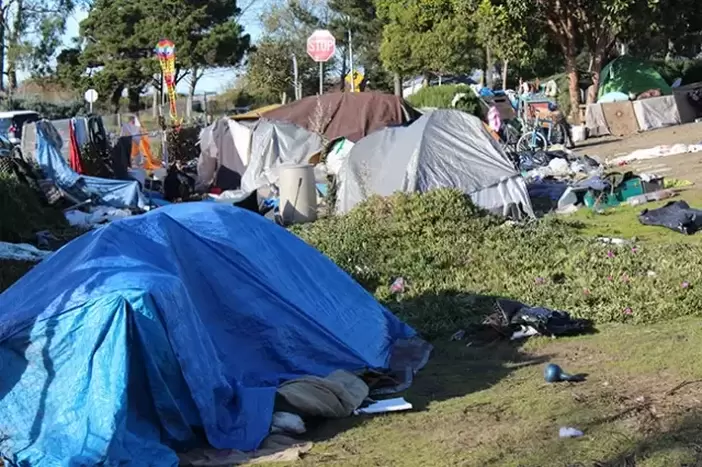
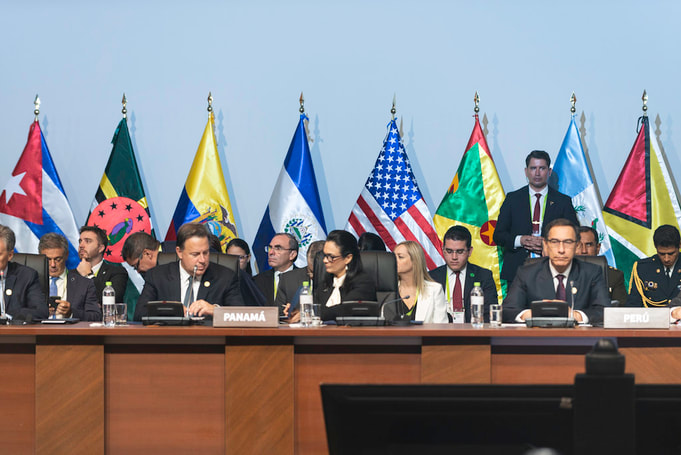
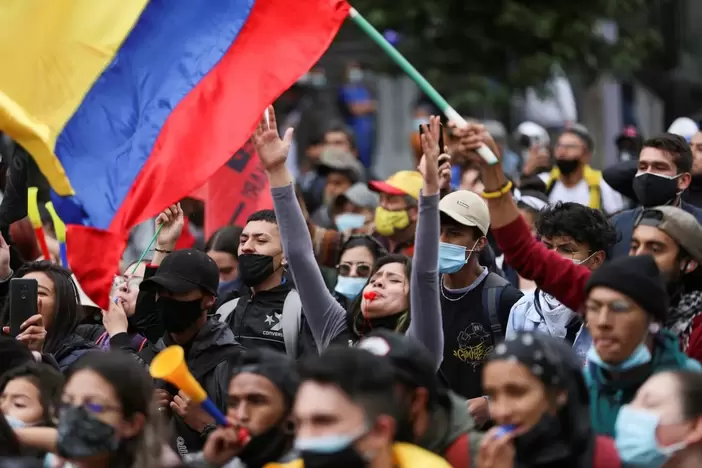

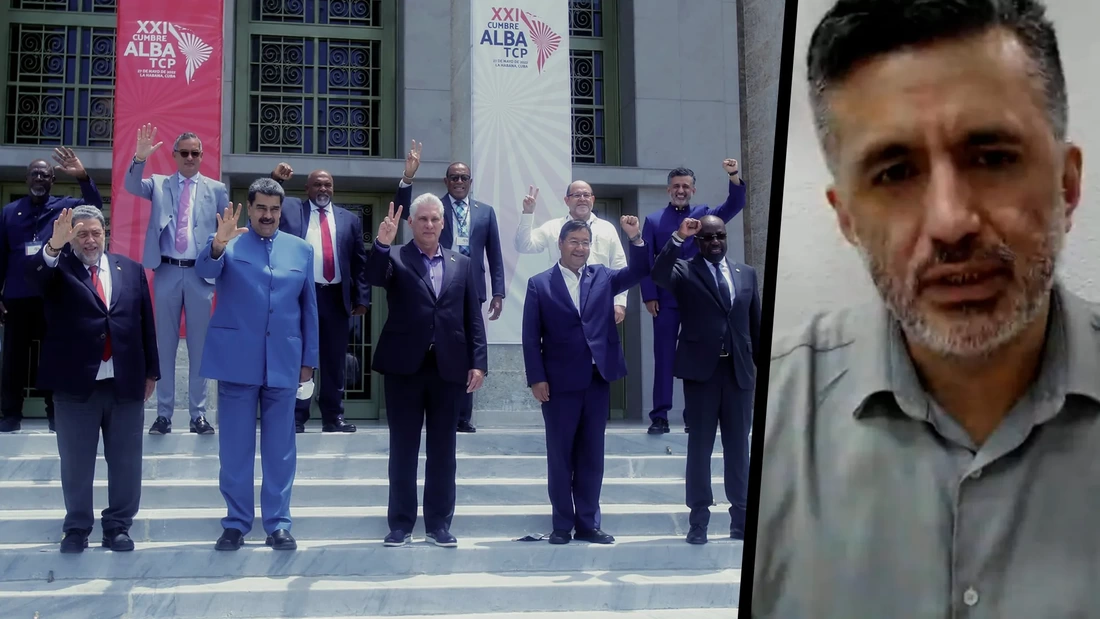



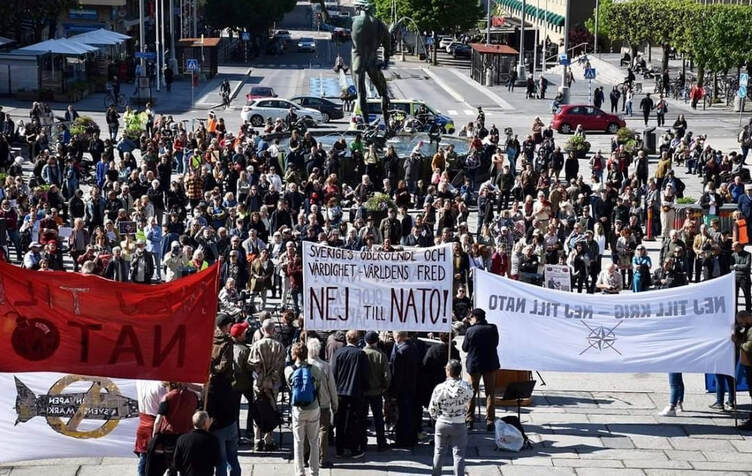





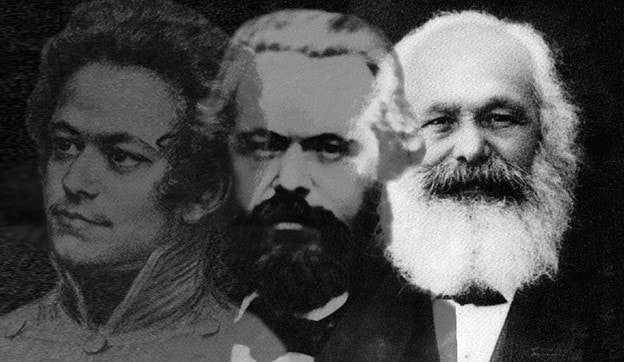
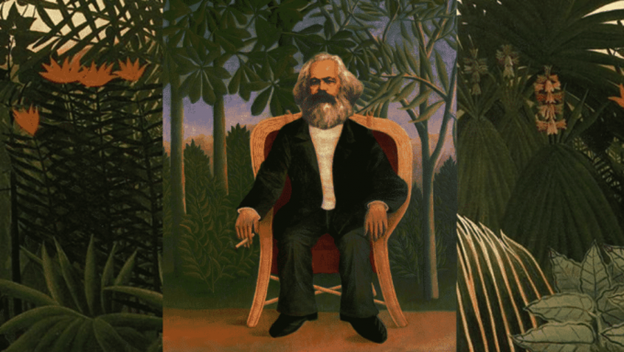



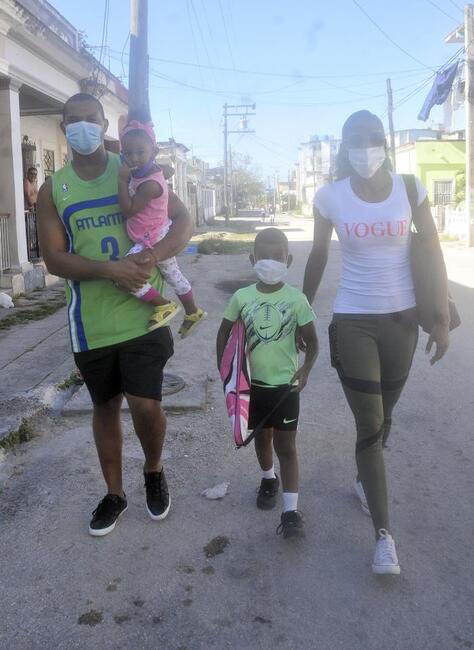
 RSS Feed
RSS Feed